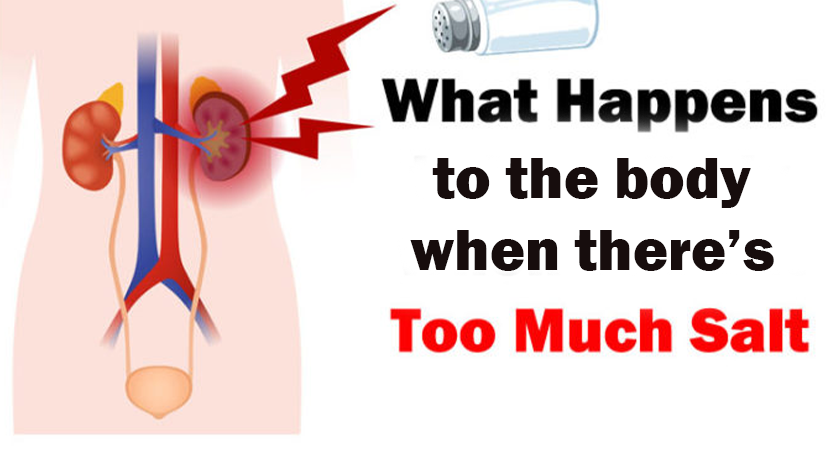We hear often how you should watch your sodium intake. It’s easy to ignore that sound medical advice when you’re encountered with French fries, potato chips, pizza and almost every other fast food item known to man. Even lots of “healthier” dishes like salads or bread and cereals that you buy at restaurants or the grocery store can be packed with loads of salt. With so much of it everywhere, it’s easy to think that it’s not a big deal and that the amount of sodium we consume in our diets doesn’t have an impact on our bodies. While you might not see the effects until years down the road, here are some of the internal consequences.
High blood pressure
Quick biology lesson: in order to function properly, your body requires sodium and potassium to be at certain levels. They are like little gatekeepers in your body and too much salt or sodium causes your nerves, heart and other biological functions to malfunction. When you’ve got too much sodium in your bloodstream, your body holds onto water to maintain correct levels so that your body doesn’t shut down. This retention causes a whole slew of problems – one of them is that the volume of your blood increases, forcing your blood pressure to rise and your heart to work more. Harvard’s School of Public Health website states that “over time, the extra work and pressure can stiffen blood vessels, leading to high blood pressure, heart attack, and stroke” (Harvard, 2018).
Kidney troubles
High sodium intake can also result in kidney stones and diseases. Your kidneys function as your body’s filter. When your body is holding onto all that water to keep the sodium in your body diluted, that water is not being used to flush out wastes and toxins that your kidney filters out. Those waste products end up being concentrated in your urine. Healthy urine will be clear and odorless – if it isn’t you need to drink more water or go see your doctor.
Bloating and weight gain
You know what else happens when you retain a lot of water due to your salt consumption? You get bloated. That water has to go somewhere and oftentimes that causes your skin to appear puffy. The increased water retention can also lead to slight weight gain. If you notice that you drink lots of water, are constantly thirsty and your urine seems concentrated, try cutting out some of the saltier foods in your diet. There are a lot of healthy alternatives if you’re looking for snack foods that are delicious and satisfying without putting so much strain on your body.
I won’t deny that salt is pretty tasty – but the amount we need to function is far less than the amount the average person consumes in their diet. When you overdo your salt intake, you cause your body to overwork which can lead to serious health problems further down the line.
Sources:
American Heart Association. (2018). Effects of Excess Sodium Infographic. Retrieved April 3, 2018, from Healthy for Good: https://healthyforgood.heart.org/eat-smart/infographics/effects-of-excess-sodium-infographic
Harvard. (2018). Health Risks and Disease Related to Salt and Sodium. Retrieved April 3, 2018, from Harvard T.H. Chan School of Public Health: The Nutrition Source: https://www.hsph.harvard.edu/nutritionsource/salt-and-sodium/sodium-health-risks-and-disease/



